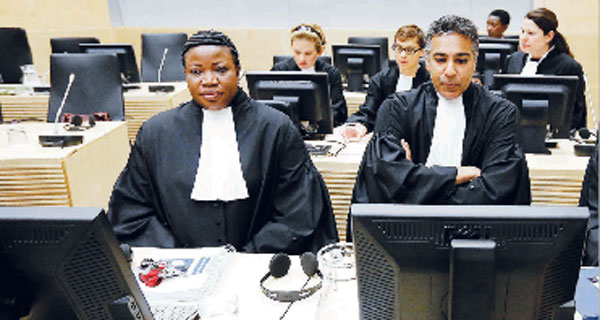×
The Standard e-Paper
Stay Informed, Even Offline
 |
| ICC Prosecutor Fatou Bensouda at the Hague-based court. |
By Martin Mutua and Wahome Thuku
There was concern yesterday after a new trial schedule by ICC placed both President Uhuru Kenyatta and his deputy, William Ruto, at The Hague at the same time.